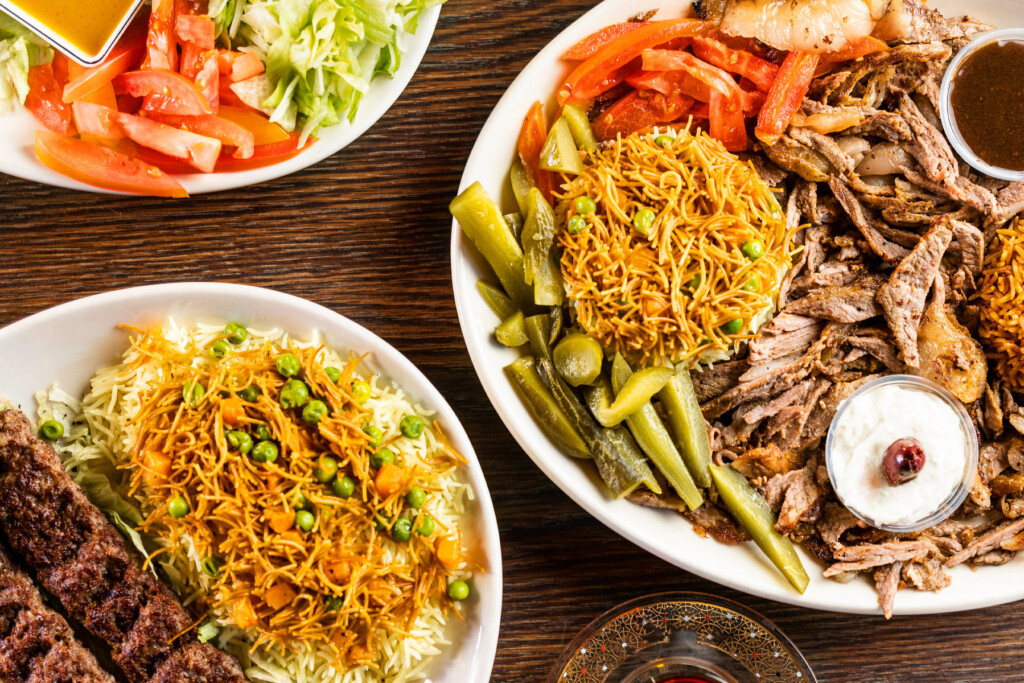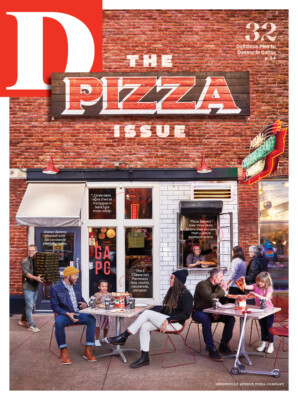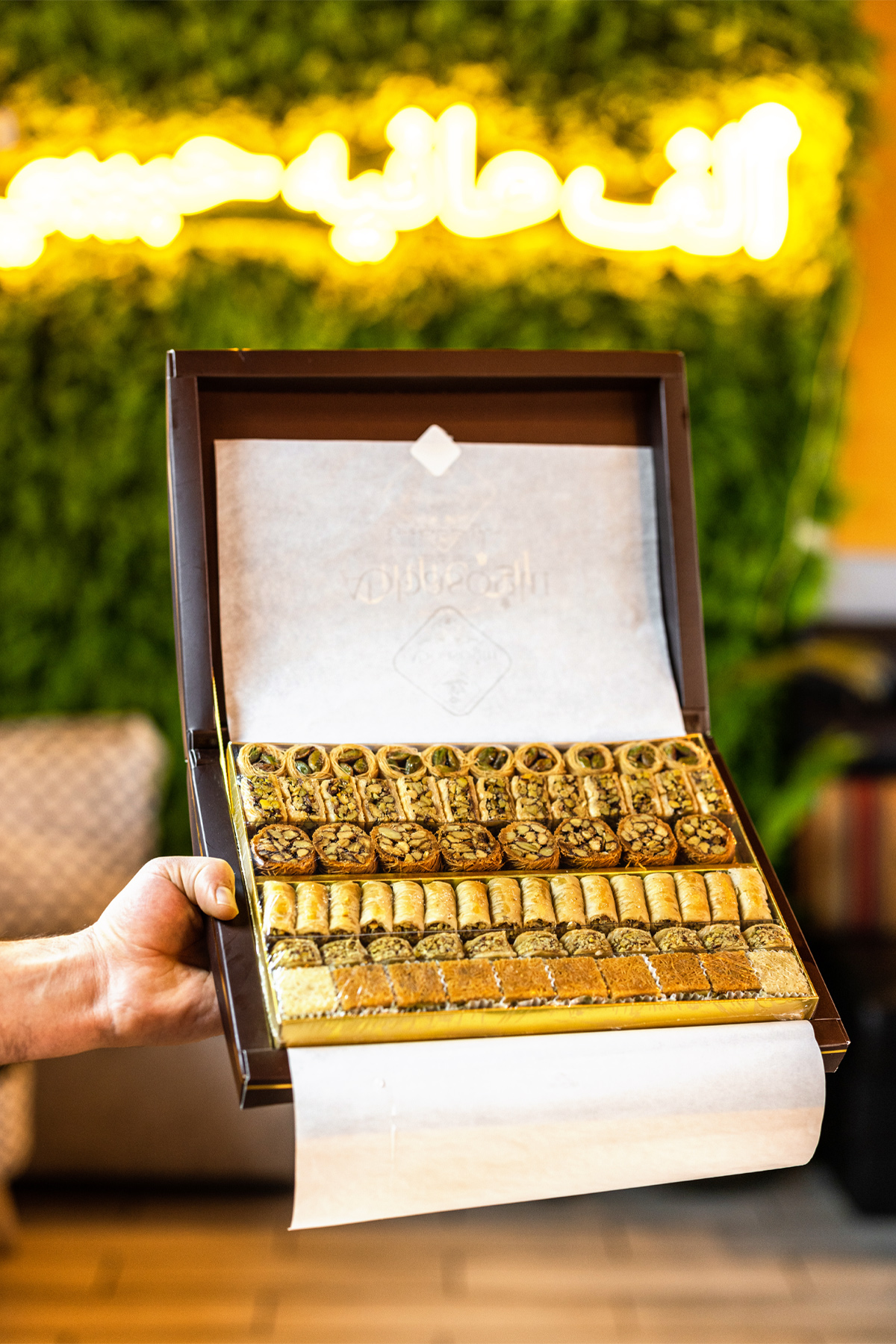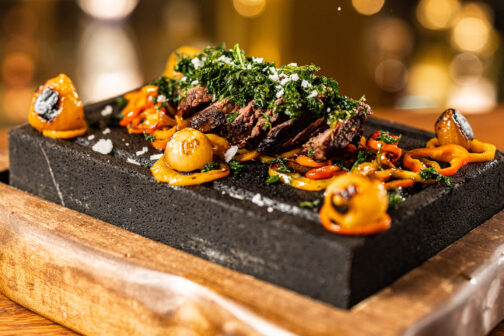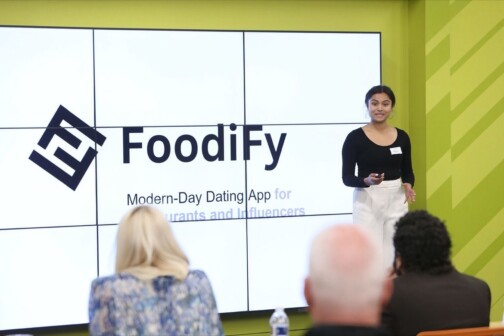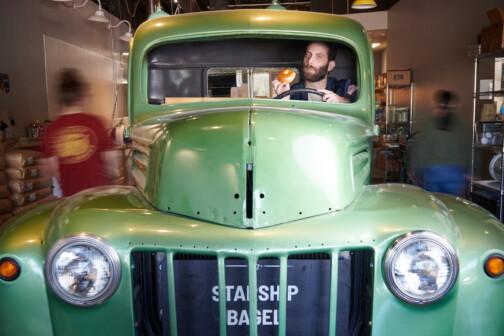Every meal at Gilgamesh, a new Iraqi restaurant in Richardson, starts with a cup of lentil soup. In fact, your soup may arrive before your menu.
Many restaurants offer free snacks to begin a meal. Texans have been raised since birth on a steady diet of chips and salsa. But a cup of lentil soup feels different. That’s especially true when it’s as comforting a dish as this one. Gilgamesh’s lentil soup is vivid yellow, gently spiced, and perfectly smooth. If you’ve come in from the winter cold, the soup will warm you up as you decide on your order. It’s almost a hug, like you’re visiting a relative who hasn’t seen you in a while and is elated you’ve come back.
In this case, the house you’ve entered belongs to Ahmed Allami, a construction company owner who came to Dallas in 2016. A native of Iraq, he lived in Turkey for several years before moving to the United States. Allami isn’t a restaurateur by trade, but when some chef friends said they’d like to open a restaurant, he secured and remodeled this space near Richardson’s Chinatown. Gilgamesh opened in July.
You’ll notice the dining room is decorated in a minimalist but effective fashion. Two walls are adorned with photos of ancient artwork discovered at Mesopotamian archaeological sites. The photos are a straighforward reminder of the millennia of history in Iraq’s landscapes, even more evocative than naming the restaurant after a legendary Sumerian king. (By the way, the emphasis is on the second syllable: Gil-GAH-mish.)
After your cup of soup, it’s time for more starters. Fattoush salad is a bowl of lettuce, tomatoes, peppers, and white onions showered with sumac and served with lemon wedges to finish the dressing. Baba ghanoush here is noticeably less smoky than some rivals around town. It has less of a garlic punch, too, and is made complete with a drizzle of olive oil. The hummus is a creamy, refreshing delight, and it might be the best—but certainly not only—dish here in which to dunk your bread.
In fact, most of the appetizers (and plenty of the entrées) are pretexts to eat samoon, Iraq’s iconic loaves of bread. Unlike a round pita, samoon narrows to two ends with nubby points. The loaf is fluffy and pillow-soft, with wide air bubbles around the central pocket. It’s perfect for scooping up hummus, other dips, or helpings of pickles and kebab meat. Gilgamesh bakes its samoon in-house and serves it with just about everything.
The ideal way to enjoy the bread, of course, is as a sandwich. Falafel, kebabs, and lamb livers can be stuffed into samoon. What you really want, though, is found at the back of the dining room, where beef shawarma slowly cooks on a vertical spit.
There is a world of difference between meat sliced by hand and stacked each morning and the preprocessed, industrial kebab meats that come prefrozen in a cone. The processed stuff—you might recognize its speckled appearance and flat, shaved-off shape from cheap Greek gyro wraps—is essentially pasted together from mystery-meat cuts and made delicious by copious black pepper. The real deal offers a variety of textures. At Gilgamesh, ribbons of rich rendered fat pop up throughout. And the meat is finished for a moment on a grill, adding crispness to the edges.
There is a world of difference between meat sliced by hand and stacked each morning and the preprocessed, industrial kebab meats that come prefrozen in a cone.
Available as a plate, the shawarma comes with bread, pickles, tomatoes, and a cup of a sweet barbecuelike sauce. But if you order a sandwich, the staff does the work for you, filling a samoon with all of the above and creating, for $8, one of the most satisfying lunches in Texas.
Among the grilled meats, opt for the Iraqi kebab, a ground-beef-and-lamb mixture that keeps tender over the flame and is richly seasoned. I detect plenty of pepper but also sumac, which helps bring a citrusy brightness and lightness to the meat. Look inside the Iraqi kebab, by the way, and you’ll see a wide, flat slit that’s been cut through. It comes from the broad metal skewers, which look like swords, on which the meat is grilled.
Other grilled meats tend to be overcooked. They’re still big on flavor—we loved the taste of the lamb kebab—but they have, perhaps, sat too close to or too long over the flame.
Kebab plates come with an extravaganza of sides: fluffy, long-grained rice that’s as soft as a cloud; chargrilled tomatoes; mild pickles made from Persian cucumbers; and two kinds of onions—raw white ones tossed with sumac and others that are grilled until they’re smoky. If you have a few loaves of samoon nearby, that’s all you will need.
One particular section of the menu is currently a unique offering in North Texas: the extensive selection of Iraqi breakfasts. Gilgamesh opens at 9 a.m. so you can stop by all morning to try dishes such as makhlama, a skillet of scrambled eggs, tomatoes, peppers, ground beef, and spices, or baqiluh bal duhan, a bowl of broad beans topped with a fried egg. For a first-timer, makhlama is the safest order; kebba saray is more of an acquired taste. It starts with kebba, a fritterlike ball of bulgur wheat stuffed with ground beef. (You may have had kibbeh, its Lebanese relative.) One kebba, about the size of a baseball, gets drowned in a bright red tomato sauce, and a handful of short fideo noodles are sprinkled in. The dumpling itself gets soft, and the tomato sauce might remind you of Chef Boyardee. But not, perhaps, in a bad way.
The breakfast menu ends at noon, but some items may be available later if the kitchen made extra. If you’ve struck out, you can comfort yourself with shawarma, falafel (served in big balls, lightly green from herbs), or Gilgamesh’s specialty, kozi. Kozi is a family-style shared dish of slow-cooked, fall-off-the-bone meat served over a long-grained rice pilaf. There are other goodies, such as peas and diced carrots, but the meat and rice are the twin stars. One Sunday, we were offered a choice of different meats but stuck to the most classic kozi: lamb, with bones still in, as tender as pulled pork.
For several years now, Richardson’s Iraqi food scene has been in a state of flux. Two mainstay restaurants, Haji and Chai Khanah, closed down before the pandemic. (Chai Khanah served probably the best Iraqi kebabs Dallas has ever had, but the menu was more of an aspiration than a promise, with most items mysteriously unavailable on most days.) Albaghdady Bakery, a longtime fixture of the downtown area, recently moved to a bigger space with room to sit down and eat lunch, but in my experience it is unfriendly to outsiders, especially women.
That leaves two top-quality Iraqi spots in the neighborhood. Bilad Bakery and Restaurant is a combination bakery, grocery, and cafe that sells majestic takeout sandwiches and is fantastic for catering orders. And now Gilgamesh. Allami’s latest construction project is a bakery next door, where customers will be able to grab bags of samoon and pita to take home.
Until the bakery arrives this summer, Gilgamesh is a place to sit down, relax, order tea in a traditional tulip-shaped glass, and linger for a while. You’ll willingly submit as soon as you walk in, when the lentil soup beckons you to stay.
This story originally appeared in the February issue with the title “A Hero’s Welcome.” Write to [email protected].
Get the SideDish Newsletter
Author



